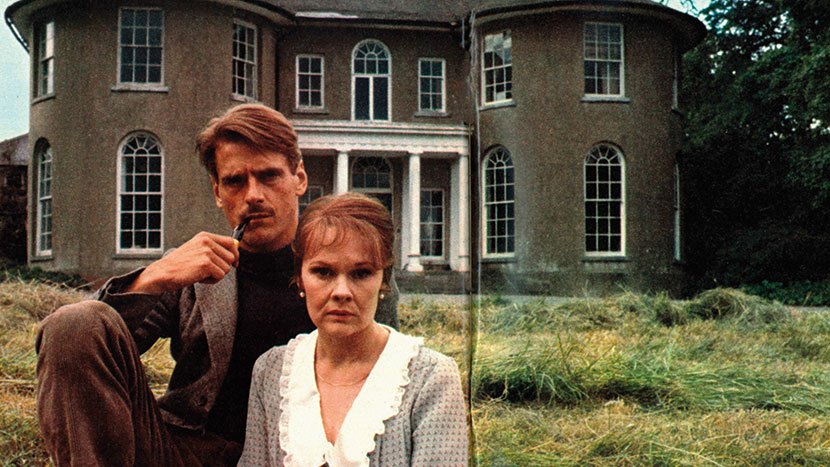The film “Langrishe, Go Down” is a little-known jewel of a film, scripted by Harold Pinter and first broadcast by the BBC in 1978.
Filmed in a village in southern Ireland two hours south of Dublin, the movie is based on the 1966 acclaimed novel by the great Irish author Aidan Higgins who won the “James Tait Black Memorial Prize” and the ”Irish Academy of Letters Award” for it.
The film was directed by David Jones (“84 Charing Cross Road”) and starred Judi Dench as well as a still only budding Jeremy Irons who three years later would star in “The French Lieutenant’s Woman”, also scripted by Pinter, which would win him the BAFTA nomination for best actor.
Set in the early 30s, “Langrishe, Go Down” depicts the decline of an Anglo-Irish family, but also the decline of Ireland and Europe, in the years leading up to the Second World War. We witness the downfall of the once well-off and respected family through the solitary lives of the three Langrishe sisters, who despite their title now live in a decadent estate which they can no longer afford to keep.
They have no inheritance and live as maids in a suspended dimension until their routine is interrupted by the arrival of Otto Beck, a god-looking mature German student with whom Imogen, the youngest of the sisters, begins a passionate relationship. The affair is one of love for her, but of “comfort” for him and will undermine the relationship between the three sisters.
A curious fact. When the film, in which Pinter makes a cameo appearance, first came out, it was banned by the Irish Film Censor due to scenes of nudity and it was not shown in Ireland until 2014 when it was screened for the first time in the village in which it had been filmed in 1977.

